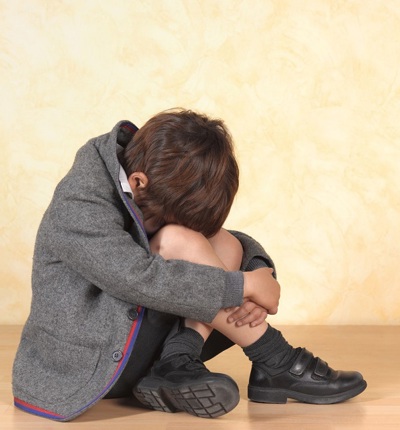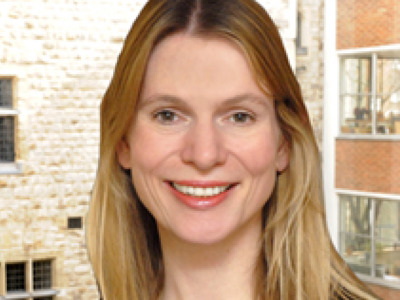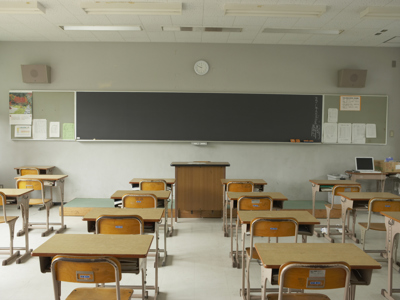
Earl Spencer speaks out about devastating abuse that he and classmates experienced at boarding school
Head of Leigh Day’s abuse team, Alison Millar discusses Earl Spencer’s disclosure of abuse at boarding school in light of her legal work and repeats her call for new laws to make it a criminal offence for those involved in regulated activities to fail to report any reasonable suspicion that a child is being abused
Posted on 18 March 2024
Charles Spencer, 9th Earl Spencer, younger brother of Diana, Princess of Wales, has disclosed that he and former classmates – around two dozen of whom he himself has interviewed – experienced horrendous physical and sexual abuse at boarding school in the 1970s.
Earl Spencer has written about his “hellish experience” in a childhood memoir “A Very Private School”.
Spencer explains that he was sent off to Maidwell Hall, a private Prep School near Market Harborough in Northamptonshire, in the 1970s between the ages of eight and 13 years old. He describes that Maidwell operated a culture of cruelty, with brutal corporal punishment being meted out for minor transgressions. Earl Spencer blames the school’s then headmaster, John Alexander Hector Porch, saying that Porch was in his view “a paedophile and a sadist”, staffing the School with people who were either actively complicit in abuse or would not speak out.
The School’s culture of secrecy meant that the abuse was not talked of among the boys either or reported to their parents.
Other teachers besides Porch were abusive, such as a teacher who assaulted Spencer with a spiked cricket cleat and another who hit him whilst wearing a signet ring, which cut Spencer in the scalp. Earl Spencer also describes sexual abuse from a young female member of staff, who manipulated the emotions of the young pupils. He relates how this woman’s abuse caused his premature sexualisation, with ongoing adverse consequences for him.
Earl Spencer explains that his experiences at Maidwell “snuffed out” a part of him that had been carefree and happy; “it killed the gentler part of me. For us to survive in that environment, a small but important part of us had to die.”
As a lawyer who has represented many people affected by abuse and a trustee of NAPAC (National Association for People Abused in Childhood), I know that these disclosures by a person of public prominence will be significant for others living with the legacy of childhood abuse.
Spencer is using his platform further to expose a culture of abuse that was not confined to one institution but was prevalent in schools during this time period. He joins other brave survivors who have done this such as the broadcaster Nicky Campbell who described a culture of anticipated violence, normalised sexual assault and relentless physical abuse at Edinburgh Academy during his testimony to the Scottish child abuse inquiry.
Campbell has described how he realised from speaking to others that this was happening “on an industrial scale”.
Childhood abuse affects every strata and sector of society. It can happen to anyone, even to those from apparently the most privileged of backgrounds. I have had clients describe to me how their parents literally paid for them to be abused in a private school. It is important and right to talk about these experiences to bring them into the light, break open the secrecy that prevented those directly affected from being able to speak out as children and even as adults feel that they have to carry with them in silence a burden of shame, embarrassment and guilt.
Some commentators responding to Charles Spencer’s disclosures have said that their experience of boarding school was different and positive.
However, we know abusers are adept at selecting their victims, often choosing children who are particularly vulnerable in the context of the environment – children from estranged families or those on scholarships, for example. Other children escape and allow the abuser to continue to operate “in plain sight”.
These comments are not a helpful response to disclosures such as Spencer’s as they can feed into narratives that the child was lucky to have received a boarding school education for which parents may have made sacrifices, further engendering feelings of guilt.
The truth is that child abuse is never, under any circumstances, the fault of the child.
It is very difficult to confront memories of childhood abuse and disclose these. The All Party Parliamentary Group’s inquiry into adult survivors of childhood sexual abuse found that the average male survivor waited for 26 years before disclosing abuse, if they ever do.
Like Earl Spencer, it may be many years before a survivor of abuse understands the harm caused to them and is ready to speak out.
Years that can be affected by the ongoing impact of the abuse and consequential psychological damage.
We know now that there can be lasting, negative effects of abuse: adverse childhood experiences are linked to chronic health problems, mental illness and substance use problems in adolescence and adulthood. Education, job opportunities and earning potential can be impacted. Close relationships and social functioning in adulthood may be damaged.
When people speak out who have endured abuse as children, others similarly affected will be listening and watching to see the response. I commend the bravery of Earl Spencer for speaking out about his experiences. There is no right or wrong time to do so. It is never too late to tell someone.
Unfortunately, as a society we still have a long way to go to protect children from sexual abuse and exploitation and enable accountability and redress for those who have been harmed. In November 2022, the Independent Inquiry into Child Sexual Abuse (“IICSA) published its final report, the culmination of 7 years of investigation and having heard evidence from over 7,000 victims and survivors. IICSA made 20 recommendations for system reform. Although in a written statement made on 10 January 2024, the Home Secretary stated that the Government was taking “concerted action” on several of the Inquiry’s recommendations, as yet this has not translated into implementation of what IICSA was clear was intended as a package of reform.
One of the recommendations that IICSA described as forming the “centrepiece of the Inquiry’s work” relates to the introduction of a statutory requirement of mandatory reporting. IICSA found that a prominent reason that individuals and institutions failed to report child sexual abuse to statutory authorities was a desire to protect an individual or institution from reputational damage: “Protection of reputation was particularly prevalent within religious, educational and political institutions, and concerns to avoid embarrassment trumped concerns about risks to children”.
I have heard repeated accounts from survivors of abuse in schools that teachers and other staff whose behaviour was of concern were allowed to move on to a different setting where they could continue to work with children. For example, in the case of Piers Le Cheminant who moved from Oakwood School to Salisbury Cathedral School and last year was sentenced for offences of indecent assault of children at both schools.
We need robust mandatory reporting legislation, which makes it an offence for people working in regulated activities not to report reasonable suspicions that a child has experienced, or is experiencing, abuse to the statutory authorities.
It is important that the duty covers both suspected and known child abuse – because the circumstances in which the reporter will actually know that a child has been abused, given that most child abuse takes place in secret, are infrequent.
Disappointingly, the Government intends to limit the new mandatory reporting duty for those engaging with children across England to known or witnessed incidents of child sexual abuse. This will make it much less effective. The priority must be to get mandatory reporting legislation on to the statute books, to make it clear that those who facilitate, cover up or otherwise turn a blind eye to child abuse will face real consequences. We must learn lessons from past failures such as Maidwell.
If you have been affected by childhood abuse, please know that there are organisations that you can reach out to for emotional support, including the following:
NAPAC – Free, confidential support line 0808 801 0331 (Monday to Thursday 10am-9pm; Friday 10am-6pm); support email support@napac.org.uk
The Survivors Trust - Free, confidential helpline 0808 801 0818 (Monday to Thursday 10am-12.30pm, 1.30pm-3pm & 6pm-8pm; Friday 10am-12.30pm & 1.30pm-3pm; Saturday 10am-12.30pm; Sunday 6pm-8pm); text service 07860 022 956; helpline@thesurvivorstrust.org
Survivors UK (male & non-binary people) - National online helpline (Monday – Sunday 12pm-8pm); chat online; chat via SMS text 020 3322 1860

Alison Millar
Alison Millar works in the human rights department at Leigh Day, where she is the head of abuse claims

Piers Le Cheminant convicted of abuse of former pupils at Oakwood Boarding School, Chichester and Salisbury Cathedral School
Retired teacher Piers Le Cheminant has been convicted of sexual assaults on boys at Oakwood Boarding School in Chichester and Salisbury Cathedral School between the late 1960s and 1980s.


